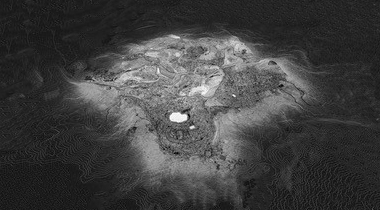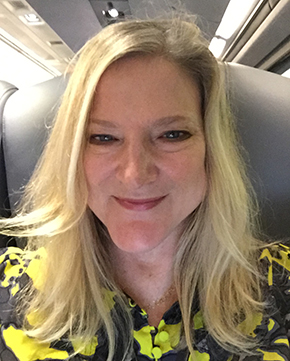Anthropology Researcher is Funded to Study Geospatial Technologies in Pursuit of Justice
 |
|
A digital model of the Cerro de Pasco mining operation in Pasco region of Peru. Communities living around the mine have been subject to massive lead exposure through contaminated soil, water and air. A consortium is working to highlight the abuses of the mine's owner by synthesizing spatial and scientific data into a single register. (Image by SITU.nyc) |
ALBANY, NY (Feb. 27, 2020) — Jennifer Burrell of Anthropology and two collaborators will conduct one of the first empirical studies on how geospatial technologies are being used around the world in criminal and human rights judicial investigations, thanks to a new National Science Foundation (NSF) grant.
Burrell, working with co-PIs Kamari Maxine Clarke of UCLA and Sara Kendall of Kent University Law School in the United Kingdom, will receive $299,999 over three years from the NSF’s Cultural Anthropology and Law and Science programs for the project “Geospatial Technologies, Justice and Evidentiary Procedure.” The highly competitive award provides support for multi-sited research on three continents.
"In the past years, new technologies have begun to fundamentally shift the production of evidence in human rights cases," said Burrell. "Yet, relatively few cases utilizing this evidence have appeared in courts. We look forward to tracing the processes from the expectations, and hopes that people will invest in these technologies, and their advocacy for them, through to their presentation in the International Criminal Court and elsewhere.”
Working in Mexico, Nigeria and the Hague, the team will explore how diverse communities are using and interpreting data culled from new technologies, and producing evidence in order to understand new judicial interventions at the local, national and international levels. Such technologies as geo-satellite imaging, drones and ground technology systems are now being used effectively by civil society stakeholders and legal experts in criminal and human rights investigations.
 |
|
Sociocultural political anthropologist Jennifer Burrell |
Burrell and her colleagues also will explore these technologies’ proliferation in recent years among governmental and law enforcement bodies, as well as nongovernmental organizations, advocates and ordinary citizens.
The research design utilizes qualitative methods, including coding from 120 interviews with representatives of multiple population groups, participant observation of technology trainings and court proceedings, archival analysis of public media and visual analysis of satellite imagery. Much of the project's data will be made publicly available through an archive documenting the role of technology in investigations and justice proceedings.
Burrell is a sociocultural political anthropologist interested in questions of power, structural and political violence, political economy, law and the construction of inequalities. She conducts research in Guatemala, Mexico, Europe and the United States on migration, security, human rights, humanitarianism and the state.
An active researcher in the fields of human rights, humanitarianism and development, she uses the insights of social and political economic theory and ethnography to address practical and policy concerns, and has authored the books Maya After War: Conflict, Power and Politics in Guatemala (2013), and Central America in the New Millennium: Living Transition and Reimagining Democracy (2012).
![]() For more news, subscribe to UAlbany's RSS headline feeds
For more news, subscribe to UAlbany's RSS headline feeds
A comprehensive public research university, the University at Albany-SUNY offers more than 120 undergraduate majors and minors and 125 master's, doctoral and graduate certificate programs. UAlbany is a leader among all New York State colleges and universities in such diverse fields as atmospheric and environmental sciences, business, education, public health,health sciences, criminal justice, emergency preparedness, engineering and applied sciences, informatics, public administration, social welfare and sociology, taught by an extensive roster of faculty experts. It also offers expanded academic and research opportunities for students through an affiliation with Albany Law School. With a curriculum enhanced by 600 study-abroad opportunities, UAlbany launches great careers.


